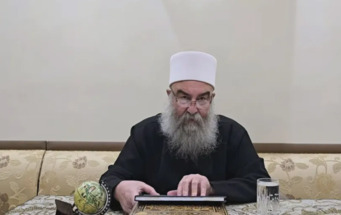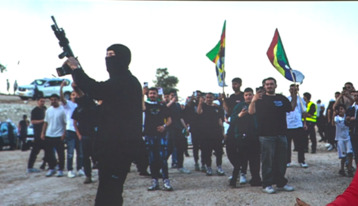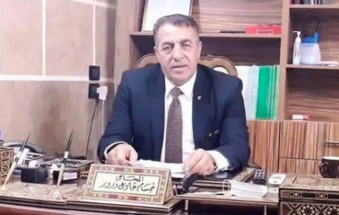-
Lebanese financial appointments delayed over sectarian squabble
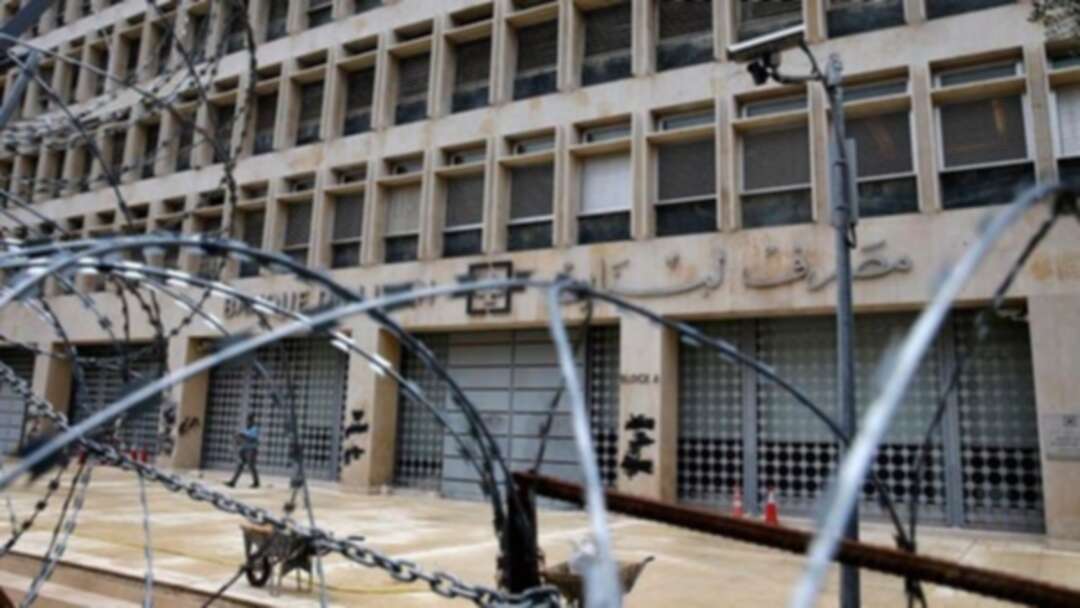
The appointment of candidates to key positions in the central bank and financial sector has become the first test for Lebanon’s new government’s stated commitment to economic and political reforms and has demonstrated that the old sectarian ways have not fallen out of style. Lebanese
The Cabinet on Thursday was set to consider appointments to 14 positions in the Central Bank of Lebanon (BDL), the Ministry of Economy, and financial oversight bodies, but postponed the discussion at the last minute after controversy erupted over the business-as-usual approach used in selecting the candidates. In other words, sectarian and political party quotas were given priority over expertise in candidate selection, whose names were not made public by the government.
The decision comes at a particularly critical time, as the country struggles with an economic and currency crisis that is now being further exacerbated by the coronavirus response, likely requiring an International Monetary Fund bailout. Lebanon earlier this month defaulted on a scheduled Eurobond payment and is likely to seek an IMF bailout.
When former Prime Minister Saad Hariri resigned in October 2019 after nationwide protests erupted, many had hoped to see the new government that was formed in the wake of the unrest move away from the decades-old sectarian system that ruled the country, even if many were skeptical that new Prime Minister Hassan Diab and his cabinet would have the ability to do so. Lebanese
At the time, protesters shouted anti-sectarian chants and a sense of cross-sectarian solidarity was felt in the street. But now, inter-party bickering over the financial appointments signals perhaps not that much has changed.
In pushing back against the decision, however, Diab appeared to signal a desire to move toward a more merit-based approach.
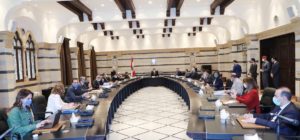 Lebanon's Prime Minister Hassan Diab heads a ministerial council meeting in Beirut, Lebanon. (Reuters)
Lebanon's Prime Minister Hassan Diab heads a ministerial council meeting in Beirut, Lebanon. (Reuters)In announcing that the decision on the appointments had been withdrawn from the Cabinet’s agenda, Diab said he had done so “because what happened violates my convictions, my starting points, and my approach. These appointments, the way they do, do not resemble all of us as a government of technocrats.” Lebanese
Some of the other Cabinet members expressed similar views, including Justice Minister Marie Claude Najm, who wrote, “Thirty years of clientelism between the leaders of the sects, the result: Corruption in the structure of the state, $100 billion in debt and more, economic and financial collapse, despair, emigration, uprising.”
Before the Cabinet meeting, disputes had erupted between political parties over their respective shares in the positions to be appointed, with Sleiman Frangieh, head of the Marada movement, a Christian party, threatening to withdraw his party’s ministers from the Cabinet if their two picks for the financial posts were not approved.
After the decision was postponed, Frangieh appeared to walk back his previous stance, saying, “We have previously said that we do not want a share of appointments and that most of what we sought was the truth, which has emerged.”
Civil society and government watchdog groups have pushed for the appointments to be made without taking political considerations into account through a transparent process in which positions would be posted with lists of criteria and the names of the candidates would be made public.
“These nominations are still being made based on sectarianism,” Hala Bejjani, managing director of government watchdog group Kulluna Irada, told Al Arabiya English. “Each position has to be from a certain religious denomination, whereas Article 95 of our constitution says that these kinds of positions are not to be reserved for any denomination and should be done not based on the political partition of the country but a merit basis.”
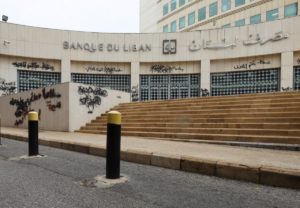 Lebanon central bank is seen closed after Lebanon declared a medical state of emergency as part of the preventive measures against the spread of coronavirus disease. (File photo Reuters)
Lebanon central bank is seen closed after Lebanon declared a medical state of emergency as part of the preventive measures against the spread of coronavirus disease. (File photo Reuters)Her group had previously encouraged qualified independent candidates to send their resumes to the group, which would forward them to the Ministry of Finance.
In a joint statement ahead of the Cabinet session, three civil society groups – Kulluna Irada, The Legal Agenda, and the Lebanese Association for Taxpayers’ Rights – called the appointments “the last opportunity for the government to prove its seriousness about financial reform” and said the appointments must be made “in isolation from any unjustified political or sectarian interference…through a transparent competitive process based on the competency framework for each job.” Lebanese
The positions include four vice governors at the Central Bank, five members of the Banking Control Commission of Lebanon, three executive board members for the Capital Markets Authority, the Central Bank’s government commissioner, and the director-general of the Ministry of Economy. The terms of the current vice governors expired a year ago, while the Banking Control Commission terms expired at the end of last month.
Bejjani said her group and other civil society actors were pleased with the decision not to move ahead with the appointments under the current process.
“We’re hoping that the next step would be, first of all, a transparent process in which a call for resumes is done with a job description of each of the positions, and that this application process is made public and that we know what are the references and on which basis the decision is going to be made,” she said. Lebanese
At the same time, she added, “We hope that they will go forward very quickly because these positions should not stay vacant for a long time because there is an urgency in addressing the problems of the banking sect and financial sector.”
source: Abby Sewell levant
You May Also Like
Popular Posts
Caricature
BENEFIT Sponsors BuildHer...
- April 23, 2025
BENEFIT, the Kingdom’s innovator and leading company in Fintech and electronic financial transactions service, has sponsored the BuildHer CityHack 2025 Hackathon, a two-day event spearheaded by the College of Engineering and Technology at the Royal University for Women (RUW).
Aimed at secondary school students, the event brought together a distinguished group of academic professionals and technology experts to mentor and inspire young participants.
More than 100 high school students from across the Kingdom of Bahrain took part in the hackathon, which featured an intensive programme of training workshops and hands-on sessions. These activities were tailored to enhance participants’ critical thinking, collaborative problem-solving, and team-building capabilities, while also encouraging the development of practical and sustainable solutions to contemporary challenges using modern technological tools.
BENEFIT’s Chief Executive Mr. Abdulwahed AlJanahi, commented: “Our support for this educational hackathon reflects our long-term strategic vision to nurture the talents of emerging national youth and empower the next generation of accomplished female leaders in technology. By fostering creativity and innovation, we aim to contribute meaningfully to Bahrain’s comprehensive development goals and align with the aspirations outlined in the Kingdom’s Vision 2030—an ambition in which BENEFIT plays a central role.”
Professor Riyadh Yousif Hamzah, President of the Royal University for Women, commented: “This initiative reflects our commitment to advancing women in STEM fields. We're cultivating a generation of creative, solution-driven female leaders who will drive national development. Our partnership with BENEFIT exemplifies the powerful synergy between academia and private sector in supporting educational innovation.”
Hanan Abdulla Hasan, Senior Manager, PR & Communication at BENEFIT, said: “We are honoured to collaborate with RUW in supporting this remarkable technology-focused event. It highlights our commitment to social responsibility, and our ongoing efforts to enhance the digital and innovation capabilities of young Bahraini women and foster their ability to harness technological tools in the service of a smarter, more sustainable future.”
For his part, Dr. Humam ElAgha, Acting Dean of the College of Engineering and Technology at the University, said: “BuildHer CityHack 2025 embodies our hands-on approach to education. By tackling real-world problems through creative thinking and sustainable solutions, we're preparing women to thrive in the knowledge economy – a cornerstone of the University's vision.”
opinion
Report
ads
Newsletter
Subscribe to our mailing list to get the new updates!

